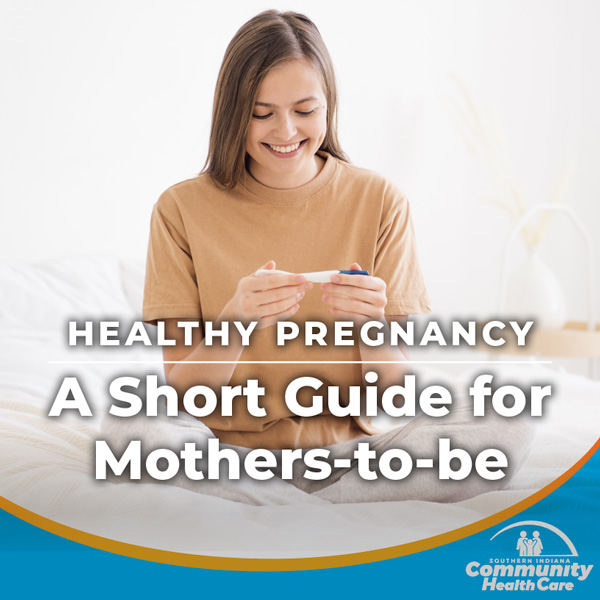Healthy Pregnancy – A short guide for mothers-to-be

By Amanda Bowman, Family Nurse Practitioner (Prenatal care and women’s health), SICHC
Pregnant or thinking about getting pregnant? Starting a family and having a baby is one of the most wondrous and memorable times, one that spans a whole spectrum of experiences and emotions. If you’re thinking about having a baby or are already pregnant, here are some important considerations to think about.
If you’re a mother-to-be (or a supporting partner of a mother-to-be) or planning pregnancy, ask yourself: how’s my overall health? The overall health of the mother has a lot to do with complications that can occur during pregnancy. Knowing these risk factors prior to pregnancy or early in pregnancy can have a huge impact on the overall health of the pregnancy.
Taking care of you and your growing baby
I have been seeing expectant mothers for a little over 6 years now. Among the first things I discuss are: are you taking a daily prenatal vitamin? The second thing I often ask is: how are your eating habits?
During the formative weeks of baby growth, expectant mothers (and those working on having a baby) should strive for a balanced diet rich in fruits, vegetables, whole grains, and lean protein. I know from experience that eating fresh can sometimes be a challenge in southern Indiana, but it’s easier in the summertime.
But even with meals planned around fresh foods – especially in folate-rich foods like leafy greens, citrus fruits and beans/legumes – gaps can occur. Taking prenatal vitamins before pregnancy and especially during the first trimester is important. Taking an over-the-counter prenatal vitamin with folic acid, iron, and calcium is highly recommended and gives the baby the best environment to develop in.
The essential nutrients in a balanced diet and prenatal vitamins benefit your baby’s physical development and overall health. Folic acid helps to prevent neural tube defects in the spine and brain. Iron in your diet and prenatal vitamins help support blood volume as your baby develops; nutritional calcium supports strong bone development; and DHA supports brain development.
Partner with a provider
So as you’re reading this, you may have questions. That leads to the next important recommendation: if you’re pregnant (confirmed by a test after missing a period), it is very important that you select and see a provider for a prenatal visit within four-six weeks of getting pregnant. If you’re thinking about becoming pregnant, it is recommended that you schedule a well-woman visit with your provider. Well-woman visits can include a review of pre-conception issues that can be identified and addressed to help lower potential risk factors and promote the conception and development of a healthy baby.
In the first prenatal visit, your provider will work with you to check on your overall health and come up with a plan to promote a healthy pregnancy and a healthy baby.
Worried about how much this will cost? Many insurance plans – including the HIP 2.0 plan – include specific benefits to support mothers-to-be and their babies. Our area of service in southern Indiana includes a number of non-profit organizations – like Hope Resources in Bedford – who provide a whole range of supportive services at low- or no-cost (also, some insurance providers suspend co-pays and provide other benefits while pregnant). You can always call any of our SICHC offices (or other healthcare providers) to ask upfront. (Note, HIP 2.0 and insurance companies like MHS in Indiana offer some specific advice: https://secure.in.gov/fssa/hip/about-hip/hip-maternity/ and https://www.mhsindiana.com/members/hip/benefits-services/pregnancy.html)
Since this is the digital generation, I find that many expectant mothers have already done some online research before they see me. You need to be careful about online advice, but there are some good general resources like https://www.cdc.gov/pregnancy/index.html and https://www.pampers.com/en-us/pregnancy/birthing-classes. But remember, nothing fully replaces in-person prenatal care with a qualified provider.
A final note about a serious matter: in this day and age, sometimes mothers-to-be face challenges with substance abuse and related disorders. If this is you, don’t let that stop you from seeking prenatal or pregnancy care. All matters like these are treated confidentially and you will be safe.
Pregnancy is an exciting and wonderful journey. Partner with your provider and travel this journey with confidence and good health.
Amanda Bowman is a family nurse practitioner specializing in obstetrics and gynecology, seeing patients from all Southern Indiana Community Health Care service areas.
